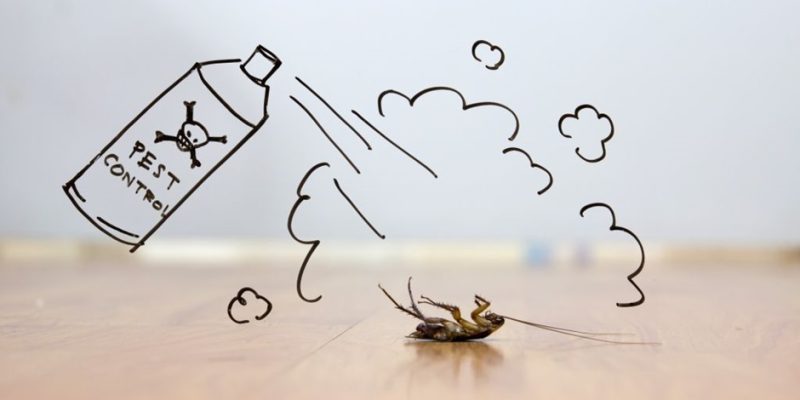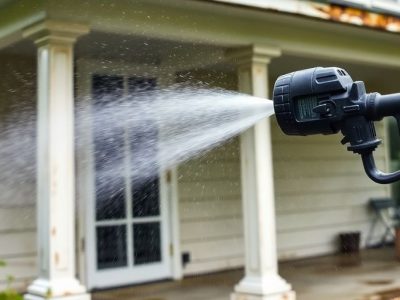Pest control is a crucial aspect of maintaining a healthy and comfortable living environment.
Whether you’re dealing with ants, roaches, rodents, or other unwelcome guests, effective pest management is essential.
However, many people make common mistakes in their efforts to keep pests at bay. In this article, we’ll explore six of these common pest control mistakes and provide tips on how to avoid them.
Mistake #1: Ignoring Early Signs
One of the most common pest control mistakes is ignoring early signs of an infestation.
Pests are often sneaky and tend to start small, but if left unchecked, they can quickly multiply and become a major problem.
Signs of infestation can include droppings, gnawed items, strange odors, or visible pests.
Solution:
Regularly inspect your home for signs of pests, even if you haven’t seen any yet. Early detection allows for prompt action and can prevent a minor issue from becoming a major headache.
If you’re uncertain about what to look for, consider hiring a professional pest control service for a thorough inspection.
When facing persistent pest infestations that require expert intervention, residents in the Cairns area can rely on reputable Pest Control Cairns, a reputable local service with a proven track record of effectively managing a wide range of pest issues.
Mistake #2: Overusing Pesticides
While pesticides can be effective in controlling pests, overusing them is a common mistake that can have negative consequences for your health and the environment.
Spraying excessive chemicals can lead to pesticide resistance in pests and harm beneficial insects, animals, and even humans.
Solution:
Use pesticides as a last resort and only when necessary. Start with less toxic alternatives, such as traps, baits, or natural remedies.
When using pesticides, follow the label instructions carefully, and consider hiring a licensed pest control professional who can apply them safely and effectively.
Mistake #3: Neglecting Routine Maintenance
Failing to maintain your home and property is a recipe for pest problems. Cracks, gaps, and neglected areas provide pests with easy access to your living spaces.
Common maintenance issues include broken screens, damaged seals, and untrimmed vegetation.
Solution:
Regularly inspect and maintain your home, sealing any cracks and crevices, fixing screens, and addressing any water leaks promptly.
Keep your yard well-trimmed and remove debris that can serve as hiding places for pests. Proper maintenance can go a long way in preventing infestations.
Mistake #4: Inadequate Sanitation
Pests are often attracted to food, water, and shelter. Neglecting proper sanitation in and around your home can make it an inviting place for pests.
Leaving food scraps out, not sealing trash cans, or ignoring proper food storage are all common mistakes.
Solution:
Maintain a clean-living environment by regularly cleaning your kitchen, dining areas, and storage spaces.
Store food in airtight containers, dispose of garbage properly, and clean up crumbs and spills promptly. Good sanitation practices can help deter pests from taking up residence in your home.
Mistake #5: DIY Missteps
Many homeowners attempt to handle pest problems themselves, often with mixed results.
While DIY methods can be effective for minor issues, they can also lead to mistakes that make the problem worse or result in wasted time and money.
Solution:
If you’re not experienced in pest control, it’s wise to consult with a professional.
A licensed pest control expert can correctly identify the pest, determine the best approach for eradication, and apply treatments safely.
DIY methods may work for minor issues, but don’t hesitate to seek professional help for persistent or severe infestations.
Mistake #6: Inadequate Pest Identification
Failing to correctly identify the type of pest you’re dealing with is a common mistake that can lead to ineffective pest control methods.
Different pests require different approaches for effective eradication, and using the wrong method can be a waste of time and resources.
Solution:
Take the time to correctly identify the pest you’re dealing with.
If you’re uncertain, consider consulting a pest control professional who can accurately identify the problem and recommend the most suitable treatment.
Accurate identification is the first step toward successful pest control and preventing recurring infestations.
In conclusion, pest control is a critical aspect of home maintenance, and avoiding common mistakes can save you time, money, and stress.
By staying vigilant, using pesticides responsibly, maintaining your home, practicing good sanitation, and seeking professional help when needed, you can keep pests at bay and ensure a pest-free living environment.
Remember, early prevention and intervention are key to minimizing the impact of pests on your home and well-being.












Comments